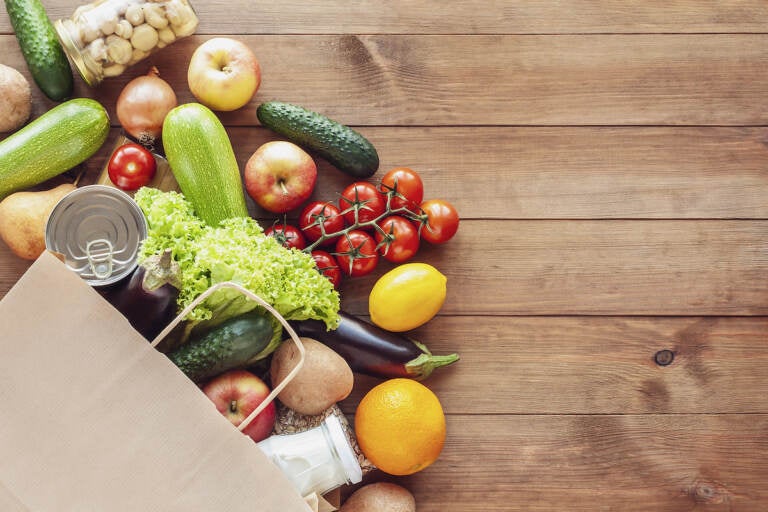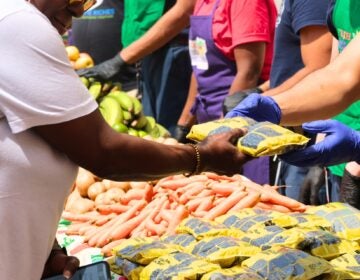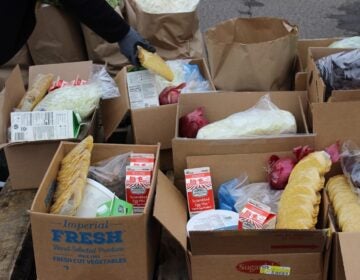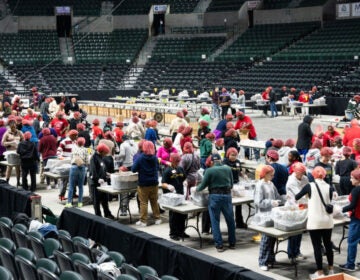A new app aims to ‘rescue’ food to help Delawareans in need
Delaware’s 302 Food Rescue app will use volunteers to collect unused food from groceries, restaurants, and elsewhere to deliver to agencies serving those in need.

There are numerous organizations offering food resources throughout the Delaware Valley. (Courtesy of Bigstock)
Nearly 94,000 people in Delaware are facing hunger, including nearly 31,000 children, according to a report from Feeding America.
At the same time, Americans waste 108 billion pounds of food every year, Feeding America reports. The nonprofit says that’s equal to $408 billion thrown out every year at a time when 34 million Americans struggle to afford food to eat.
To combat those trends, the Food Bank of Delaware is teaming up with the American Heart Association and the American Stroke Association for what they say is a first-in-the-nation statewide program to rescue unused food.
Using an app called 302 Food Rescue, named after Delaware’s statewide area code, volunteers can sign up to receive alerts when restaurants, grocery stores, caterers, or other businesses have excess food. Then, like DoorDash and other food delivery services, the volunteers will travel to the business in question, collect the excess food, and deliver it to the food bank or other agency helping to feed those in need.
“America has more than enough food for everyone to eat. But each year, billions of pounds of perfectly good food go to waste in our country,” said Food Bank of Delaware President and CEO Cathy Kanefsky. “302 Food Rescue will allow us to do our part here in Delaware to divert fresh food from the landfill and put it on the plates of those who need it most.”
The Delaware app is based on the Food Rescue Hero platform, which is designed to automate the process of collecting food from retailers like grocery stores and restaurants.
Retailers might make items available to donate because they have too much stock, “fresher goods are delivered to replace what’s on the shelves; produce is too big, too small, or the ‘wrong’ color for aesthetic standards,” according to the program’s website.
“Not having enough nutritious food to eat puts people at increased risk for heart disease, obesity, and other chronic conditions,” said Rosi Wurster, senior VP and chief nurse executive at Bayhealth Medical Center, which is sponsoring the program. “Food-insecure children are also at higher risk for developmental problems and mental health concerns.”
Those interested in volunteering can download the 302 Food Rescue app or find more information online.

Get daily updates from WHYY News!
WHYY is your source for fact-based, in-depth journalism and information. As a nonprofit organization, we rely on financial support from readers like you. Please give today.







